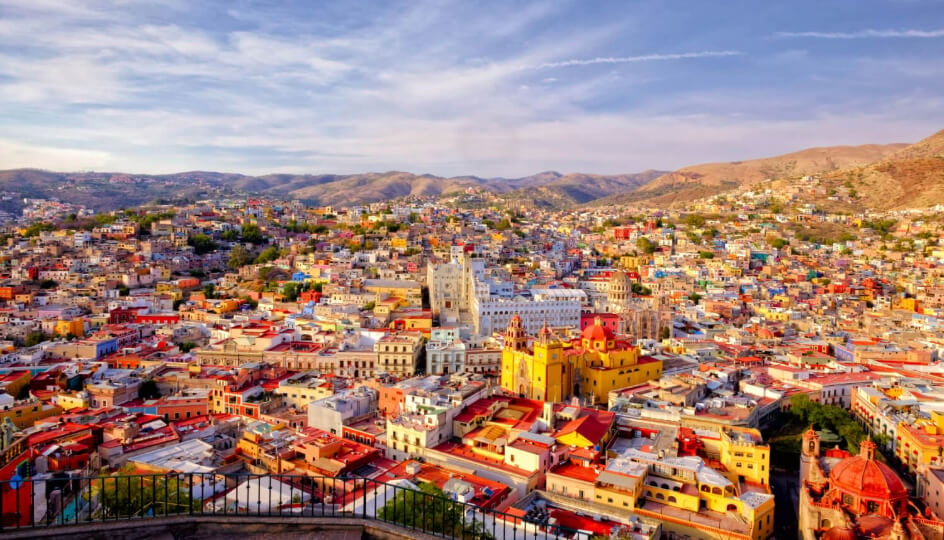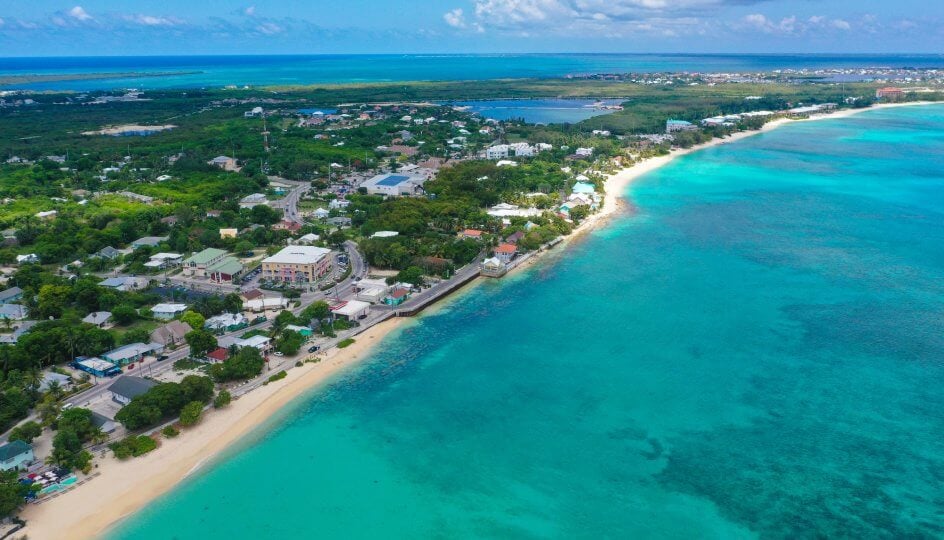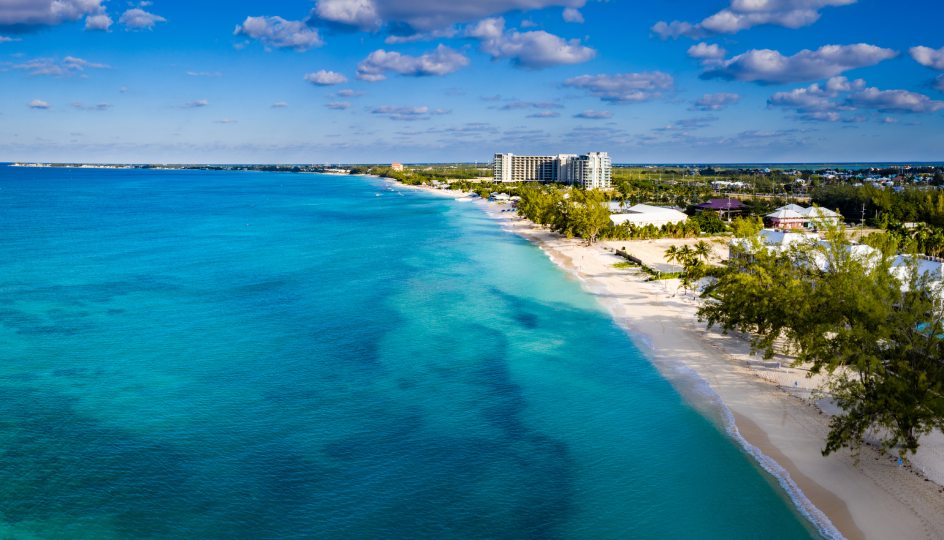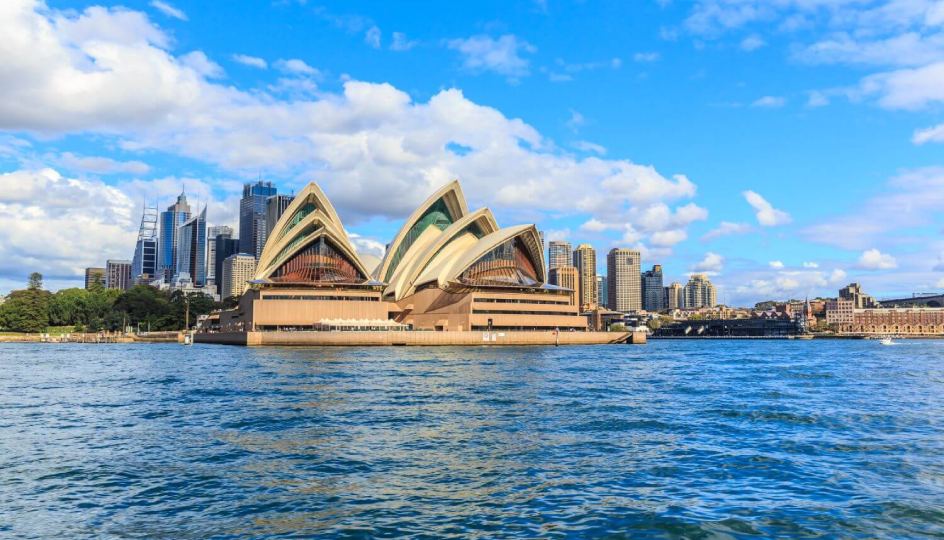Panama – a wealth of services, sectors and opportunities
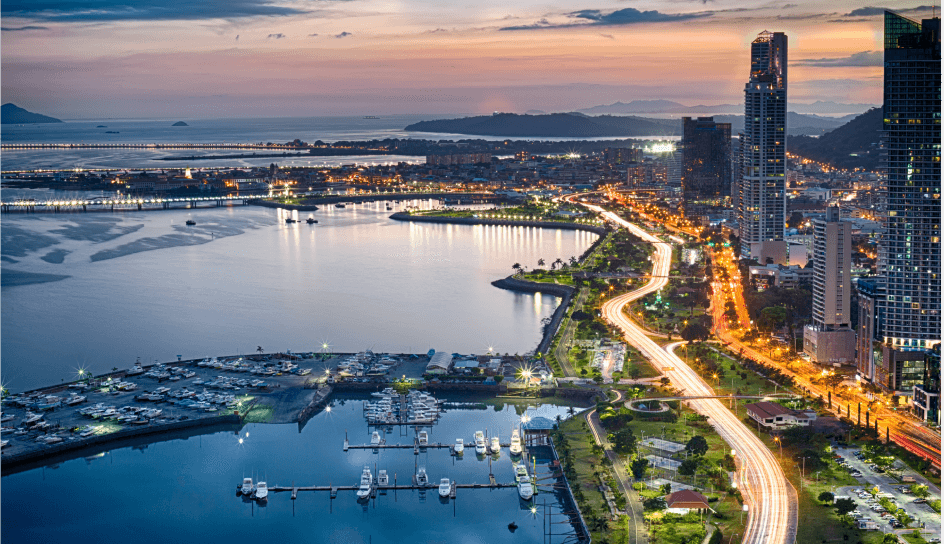
Panama is an appealing country for investment in broad range of sectors, including financial services, logistics, tourism, communications, technology and manufacturing. It boasts free trade zones and has a tax structure that attracts international investment. What’s more, its pivotal geographical location makes it a global transport and trade hub. Here we examine five areas of operation that you need to know about when doing business in the country.
In recent years, Panama has become a leading country for international business due to the sustained growth of its economy and its prime location in the Latin American region. It is perfectly positioned as a geographical link between North America, the Caribbean and South America. The Panama Canal is one of the most important commercial bases in the world and serves as a commercial and transportation link for the Americas. Not only is it a hub for air and sea transport but also a focal point for international trade and services.
According to TMF Group’s 2023 Global Business Complexity Index, Panama ranks as the 27th most complex business environment out of 78. It is a member of the World Trade Organisation (WTO) and the International Monetary Fund (IMF).
It has a population of 4.38 million, GDP of US$63,610 million and GNI per capita standing at $14,010 (World Bank, 2021). Key sectors of the economy include services (75% of GDP), construction, and beer and cement production.
So, what should you know about setting up and running a business in Panama?
1. Company incorporation
To establish a company in Panama, the required procedures are fairly straightforward and will take about five days to complete.
The first step is to hire an authorised agent to prepare the bylaws. You must then register the company in a public notary’s office and with the Public Registry Commercial Office of Panama, which includes paying the annual corporate tax. Once this done, you will need to obtain a notice of operation on the Panama Emprende website, request an employer registration number and register your employees with Social Security (Caja de Seguro Social).
On 9 March 2018, Resolution 201-1254 established a new process that requires companies to register in the Single Taxpayer Registry before the Panamanian Tax Authority to obtain a tax identification number.
Corporations are the most common type of legal entity in Panama. They are governed by the Corporations Act and the Commercial Code, and they can issue shares.
Corporations are made up of two shareholders or nominee shareholders (people acting on behalf of absent shareholders) who grant legal documents called ‘certificates of incorporation’. They do not have a minimum or maximum capital requirement. However, a minimum of US$10,000 is recommended. Shareholders are only liable for their assets and any of their contributions.
A Limited Liability Company (LLC) is a legal entity that cannot issue shares, but also requires a minimum of two shareholders or partners whose liability is limited to their contribution. LLCs do not have a minimum or maximum capital requirement.
The Private Interest Foundation (PIF) model is attractive to foreign companies because it has certain legal advantages in Panama, such as an exemption from all taxes and contributions (one exception is the payment of the annual fee). Like the LLC, the PIF does not issue shares. The recommended shared capital stock for a PIF is US$50,000 (non-mandatory).
In addition to the business models mentioned above, foreign companies may also establish branches in Panama. A branch is not considered a separate legal entity. It is, however, taxed on the income generated in the country.
2. Labour law
Panama has a working week of either five or six days – that is 40, 44, 46 or 48 hours per week. You can choose your preferred working hours according to business needs and economic activity. The maximum number of hours per week for the day shift is 48 hours or eight hours per day for six days.
In 2023, Panama will celebrate 13 public holidays. Employees are entitled to 30 days of paid vacation after being employed continuously for 11 months as well as 18 days of paid sick leave. Female employees are entitled to 14 weeks of paid maternity leave and male employees are entitled to three days of paid paternity leave.
The Labour Code of Panama regulates matters relating to employment, such as restrictions on working hours, wages, vacations, discrimination and harassment, dismissals, pensions and collective agreements. This code applies to all employees in the country, including foreigners. It also sets out employers’ obligations relating to the health and safety of employees, including social security benefits.
Employment contracts in Panama can be open ended, permanent, work and service or fixed-term contracts. Employers may also enter into a customised service contract with employees. An employee and employer may terminate an employment contract by mutual agreement. An employer may terminate an employee’s contract without cause if the employee has worked for less than two years. In such cases, the worker is entitled to 30 days’ notice or the payment of a sum equivalent to 30 days’ salary plus compensation equivalent to 3.4 weeks’ salary for each year of service, pro rata, along with a seniority premium and acquired rights such as holidays and a 13th cheque, if relevant.
3. Taxes
Value Added Tax (VAT) is levied on the sale of goods and services. The standard VAT rate is 7%, but increases to 10% for alcohol products and hotel accommodation, and 15% for tobacco products.
Exports, food, medicines, medical services, certain baby products and crude oil are exempt. The percentage of this compulsory tax changes for foreign entities, which is a deferred tax of the dividend tax and is 10%.
The general income tax rate is 25%. An alternate calculation of income tax (CAIR is the abbreviation in Spanish) is applied at a special rate of 4.67% of the gross taxable income. This calculation applies only when an entity generates more than US$1.5 million in the fiscal year. If a company’s taxable income is less than US$1.5 million, the CAIR calculation does not apply. Corporate taxpayers can apply to the tax authorities for an exemption from CAIR if they have net operating losses, or when the effective tax rate exceeds 25% after calculating the alternative minimum tax.
Qualifying foreign companies, as well as Panamanian companies operating in the country and duty free zones, must file an annual tax return. The International Financial Reporting Standards (IFRS) are the accounting principles that are adopted and required in Panama for all domestic and foreign companies listed on the Panama Stock Exchange since the year 2000.
The minimum requirements for corporate accounting for Panamanian corporations are the shareholders’ registry, minutes registry, journals, general ledger and annual financial statements. Companies that do not operate in the country, including companies with assets inside or outside the territory of Panama, must keep accounting records and maintain them for no less than five years.
It is mandatory in Panama to appoint a certified public accountant to manage public institutions and private companies. Since 1 January 2022, entities have been obliged to issue electronic invoicing or an equivalent document to accredit any transaction relating to the transfer, sale of goods or rendering of services by people residing in Panamanian territory.
4. Anti-money laundering regulations
Panama is a member of the Financial Action Task Force of Latin America (GAFILAT) which, according to Panama’s Mutual Evaluation Report of January 2018, describes the country’s main risk regarding money laundering as being derived from illicit financial flows from abroad. Panama must adopt major legislative measures and regulations to remedy existing weaknesses. Panama is one of the countries listed on the Financial Action Task Force (FATF) that has been identified as having strategic AML deficiencies. After an indepth assessment conducted in 2019, GAFILAT found Panama to be compliant with 15 FATF recommendations, mostly compliant with 23 and partially compliant with two of the total 40 recommendations.
5. Foreign trade
Panama has 22 free trade agreements and bilateral investment agreements with the US, UK, France, Switzerland, Germany, Taiwan, Canada, Argentina, Spain, Chile, Uruguay, Czech Republic, Netherlands, Cuba, Mexico, Dominican Republic, South Korea, Ukraine, Sweden, Qatar, Finland and Italy.
Companies with a business license can freely import goods into Panama or through a licensed customs broker. Import duties are levied based on value, quantity, weight, measure or volume. Customs duties are calculated ad valorem, based on the cost, insurance and freight (CIF) value, which can be anything between 3% and 40%. Approximately 50% of imported good are duty free.
Duty free goods include those imported from duty free (or free trade) zones. Entities established in duty free zones are exempt from import duties on merchandise and from income, sales, export and selective consumption taxes derived from royalties on export and re-export activities.
In some cases, income tax exemptions apply, such as the income of individuals or legal persons engaged in agricultural production activities where the annual gross income is less than US$250,000.
Contact TMF Panama
If you’re looking to expand your business into Panama or strengthen existing operations, collaborating with a local partner who understands the culture can help you overcome unforeseen obstacles and improve efficiency.
TMF Panama’s local experts will help you identify business opportunities and tackle any procedural challenges. For more information, please contact us.
Want to learn more about doing business in Panama? Download our free country profile.
